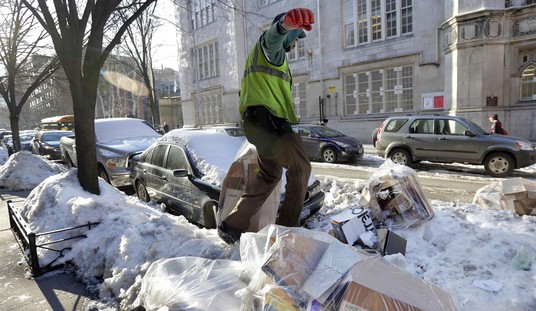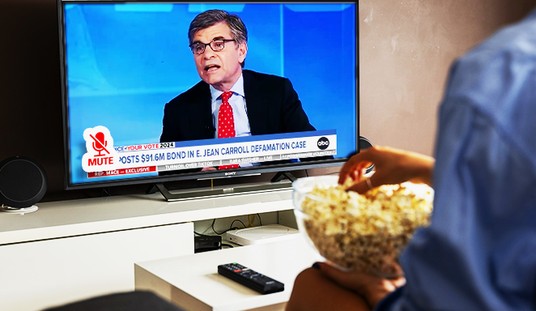Professional poker player Daniel Negreanu, in his book on no-limit hold’em strategy, spent a fair amount of time discussing the difficulties many players encounter when faced with the prospect of folding pocket kings. It’s a great hand to be dealt, but lady luck is fickle and there are times when you quickly realize that your opponent has hit something bigger. Long-term survival, he reckoned, sometimes depends on knowing when to walk away from something that looked very good at first glance. You have to know where the exit is and when to use it.
I was reminded of this while reading a piece by John Harris in Politico recently. Harris talked about the seven stories Obama doesn’t want told. The first of these tales is the growing perception that the president seems to believe he’s “playing with monopoly money” when dealing with the nation’s economy. Listening to the soothing voices of a certain sect of economists, Obama latched on to the idea that stressful economic times both require and justify huge amounts of deficit spending. The resultant debt, they surmised, was a problem which could be dealt with “later,” and a grateful public would not hold his feet to the fire as long as conditions returned promptly to the status quo they know and love.
The problem was that once this rationale was in place, profligate spending came to be seen as the correct hammer for every nail in their path. Whether it was environmental concerns, health care reform, or housing industry woes, spending was the preferred order of the day. What Team Obama failed to anticipate was that the public would actually notice the mounting debt and grow irate when it failed to translate into significantly lower unemployment and a sustained bounce in real estate prices. But the White House couldn’t walk back from the big spending fix, which looked so good only six months earlier.
As we approach the one year mark in the age of Obama, I’ve noticed that this seems to be a trend for the current administration. One of the earliest examples was the decision to close the detention facility at Gitmo. It was a tremendously powerful talisman for his base of political support during the campaign and certainly seemed easy enough once he took office. All that was required was a quick flourish of the fountain pen and the deed was done — the pesky site would be closed in one year.
Sadly, reality began rearing its ugly head as it usually does, and the challenges quickly began to outweigh the political benefits. Each attempt to put salve on the rapidly festering wound — asking other nations to take troublesome prisoners off our hands, moving toward civilian trials, or shipping captives to supermax facilities in the states — blew up in Obama’s face while draining valuable political capital. The White House could have gotten in front of the story during the summer, lowering expectations and extending the deadline, but they just couldn’t walk away from such a shiny bauble until the roof was already caving in.
The path the president seems to have chosen in Afghanistan is following a similar trajectory. I have not begrudged the time he is taking to make a decision on our future involvement there, providing it was a sound call. But there were two clear choices on the table which also follow our poker analogy quite well. He could either go “all in,” giving his generals all they requested and more in order to win the “good war” (as he described it on the campaign trail). Or he could fold and go home, making a large swath of his base happy. Unfortunately, it now appears that he’s going to pick a middle path of feeding in a lower number of troops and failing to adequately clarify the strategy goals. This is the equivalent of a no-limit player continuing to call the raises of the chip leader long after any prospects of winning the hand have evaporated.
Health care reform seems to be playing out like another great looking pair after the shuffle which began melting down as soon as the flop hit the felt. The president had been assured that massive government intervention with a “robust public option” was the popular, unstoppable choice. This, of course, flew in the face of history’s lessons regarding those who had attempted it before. On this particular deal, once the support began washing out from under him, Obama seemed to freeze up. He announced his support for virtually every Democratic option offered which might see the deed done, but in the end wound up passing the hand over to Nancy Pelosi to play it for him. A convincing argument can be made that the GOP offered him a graceful way out of this trap with H.R. 2520, Republican Representative Paul Ryan’s Patient’s Choice Act. But yet again, the tempting fruit had been placed in front of Barack Obama by his own party and he simply couldn’t walk away.
One has to wonder if this pattern will continue when it comes to the rest of the Democrats’ ambitious agenda. Each tidbit left on his plate seems to require even more spending in areas which will produce few (if any) jobs, as Main Street continues to stagger under double-digit unemployment numbers. They were tempting targets while he was on the campaign trail and somebody else had to mind the store, but these populist pies in the sky are quickly transforming into potential land mines.
A smart politician, like a crafty poker player, has to know when to lay down his cards and wait for a better hand. Think of it as an “exit strategy” that has nothing to do with warfare. Unfortunately, Obama can’t seem to find the exit even when it’s clearly the best option. Sooner or later he’s going to realize that pocket kings can and do blow up in your face.









Join the conversation as a VIP Member